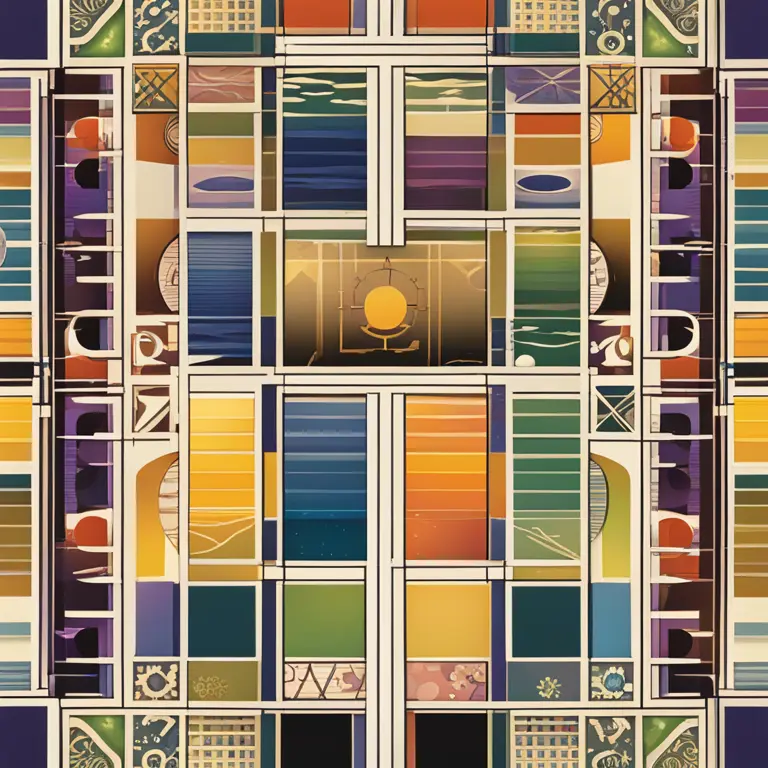
Can Numerology Foretell Lifespan Termination?
Examining the boundaries of numerology in predicting life's final transition and providing a rational perspective on this controversial topic.
article by Sofia Ferguson
Introduction to Numerology and Mortality
As humans, we have always been fascinated by the mysteries of life and death. Numerology, the study of numbers and their cosmic vibrations, has been used for centuries to decode personality, predict future events, and understand life's purpose. In recent times, questions have surfaced about the boundaries of numerology, particularly regarding its ability to predict the date of death. This article aims to demystify the claims surrounding numerology and mortality and to provide a rational examination of its potentials and limits concerning life's ultimate certainty.

The Ethical Considerations
Before delving into the capabilities of numerology, it's vital to touch upon the ethical concerns inherent in predicting one's demise. Numerous numerologists and ethical practitioners avoid forecasting death as it steps into a territory filled with emotional sensitivity and potential psychological impact. Ethically responsible numerologists emphasize personal growth and self-awareness rather than trying to predict the unfathomable endpoint of life.

The Numerology Perspective
Numerology is an esoteric science that correlates numbers to specific cosmic vibrations and energies. It is based on the belief that numbers assigned to our birth date and names hold significant power over our lives. The concept of predicting someone's date of death, however, strays far from the core of numerological practices. Predictions often focus on positive transformations and life paths, rather than on the cessation of life.

The Limitations in Prediction
The precision required to predict an individual's date of death is beyond numerology's premise. While numerology may offer insights into personality traits and life cycles, it's not a deterministic tool to pinpoint specific events, especially those as complex and unpredictable as the timing of death. Various unseen factors, including personal choices, random occurrences, and environmental aspects, can significantly influence the course of one's life, making such predictions unreliable.

The Role of Life Numbers
While practitioners may use numerology to analyze life numbers – which consist of the birth date reduced to a single-digit – the objective isn't to foretell mortality but rather to guide individuals towards self-improvement and fulfillment. Life numbers are interpreted to assist in identifying personal strengths and challenges, and in making informed choices that enhance an individual's life journey, not to determine its end.
A Responsible Approach to Numerology
A responsible approach to numerology involves using this ancient wisdom as a tool for self-awareness and personal development. Instead of focusing on death, numerology can be a valuable guide for living a balanced and harmonious life. Practitioners can offer insight into optimal timing for making significant decisions, realizing potential, nurturing relationships, and fostering growth—all core aspects that enrich the fabric of our existence.
Conclusion
In conclusion, while numerology provides intriguing insights into the vibrational essence of numbers, it is not a crystal ball that reveals the exactitudes of life's ending. Steering clear of such predictions is not only ethically sound but also aligns with the authentic spirit of numerology. Let us use numerology as a beacon to highlight our strengths and opportunities, leaving the mysteries of our final day to unfold in their own time.
Published: 1/16/2024
Modified: 1/16/2024
More predictions
Come back here soon to learn more about yourself and your future


The Realm of Numerology Readings
Delve into the mystic realm of numbers with our comprehensive guide to numerology readings. Discover your life's numerical blueprint.


Numerology: The Historical Insights
Dive into the ancient beginnings of numerology and discover its mysterious origins and the thinkers who contributed to its development over time.


The Roots of Numerology: An Ancient Practice
Tracing the roots of numerology, this article delves into the ancient beginnings and figures attributed with the creation of this mystical system.